About the Teaching Excellence Framework (TEF)
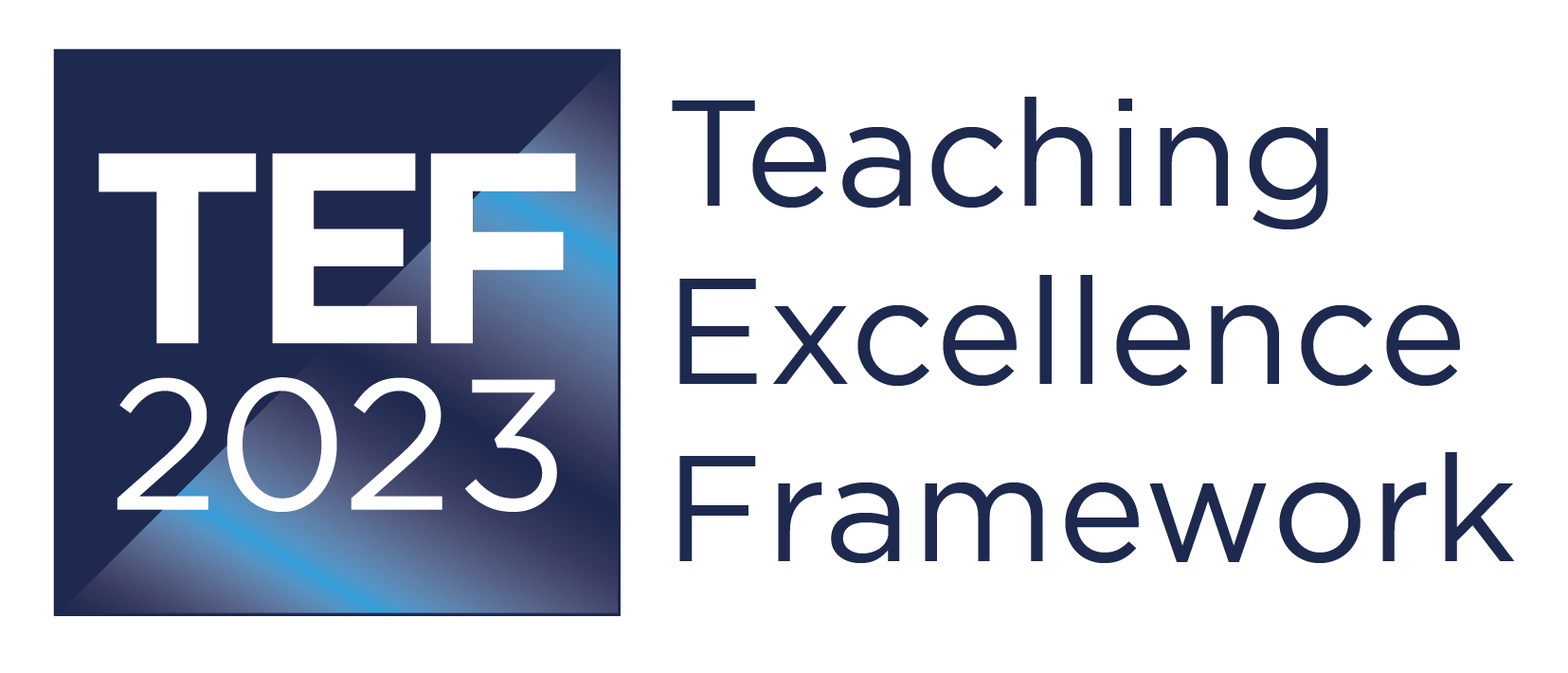
We have published the ratings of providers that took part in TEF 2023.
What is the TEF?
The Teaching Excellence Framework (TEF) is a national scheme run by the Office for Students (OfS) that aims to encourage higher education providers to improve and deliver excellence in the areas that students care about the most: teaching, learning and achieving positive outcomes from their studies.
The TEF does this by assessing and rating universities and colleges for excellence above a set of minimum requirements for quality and standards.
Universities and colleges that take part in the TEF receive an overall rating as well as two underpinning ratings – one for the student experience and one for student outcomes.
The ratings reflect the extent to which a university or college delivers an excellent experience and outcomes for its mix of undergraduate students and across the range of its undergraduate courses and subjects.
It is important that all students, whatever their background, can have confidence that they will receive a high-quality higher education and positive outcomes.
The TEF encourages universities and colleges to deliver excellent teaching and learning for all their students and, if they don't, this will affect their ability to achieve the highest ratings.
The TEF ratings create an incentive to improve by putting a spotlight on the quality of a provider's courses, influencing providers' reputations and informing student choice.
Students are encouraged to use TEF ratings – which provide a clear signal of a provider's excellence – as useful context to the range of more detailed information they will want to consider when deciding what and where to study.
228 higher education providers in England took part in the TEF 2023.
The TEF is part of our overall approach to regulating quality and standards. To be eligible to participate in the TEF, and to retain a rating once awarded, a provider must satisfy our minimum quality and standards requirements (the ‘B conditions’).
If condition B6 of the regulatory framework applied to a provider (if it had 500 or more students studying at undergraduate level), participation in the TEF was mandatory. Revisions were made to condition B6 following our consultation on the TEF.
Other eligible providers that had fewer than 500 undergraduate students were able to participate in the TEF on a voluntary basis.
Contributing to the student submission
Students had the opportunity to submit their views on the quality of their educational experience and outcomes through a student submission. The student submission for a university or college was coordinated by the TEF student contact.
More information on the role of the TEF student contact and the student submission can be found in our guidance on student submissions.
The student submissions we received for TEF 2023 are published alongside the TEF ratings.
As TEF panel members
The TEF panel included students, who were directly involved in the TEF assessment process.
There are three ratings categories signifying increasing degrees of excellence above our minimum quality requirements – Bronze, Silver and Gold.
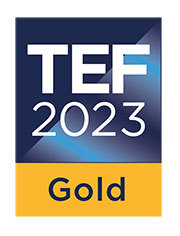 |
GoldThe student experience and student outcomes are typically outstanding. |
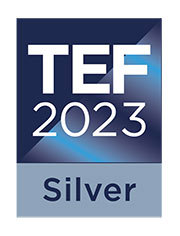 |
SilverThe student experience and student outcomes are typically very high quality. |
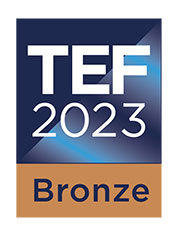 |
BronzeThe student experience and student outcomes are typically high quality, and there are some very high quality features. |
A university or college receives a lower category of 'requires improvement' if it has not shown enough evidence of excellence above our minimum quality requirements.
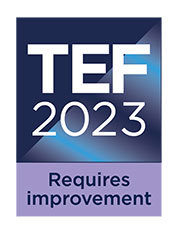 |
Requires improvementThe provider was assessed in the TEF and no rating was awarded. Improvement is required for a TEF rating. |
The TEF is a desk-based, expert review exercise. The TEF panel, which is made up of independent academics and students who are experts in learning and teaching, conducted the assessments and made the decisions about ratings.
The panel considered a combination of evidence sources: evidence submitted by the university or college, evidence submitted by its students (where available), and numerical indicators we produce from national datasets.
The indicators are benchmarked to show how well the university or college performs for its particular mix of students and courses.
When assessing each ‘aspect’ of the TEF (the student experience aspect and the student outcomes aspect), the TEF panel looked for specific things. We call these ‘features of excellence’.
After awarding a rating for each aspect, the panel then decided the overall rating. If the university or college received the same rating for the two aspects, the overall rating would be the same. If it received different ratings for each aspect, the panel made an overall ‘best fit’ decision, taking into account all of the evidence.
The TEF 2023 ratings are published on our website, along with additional information relating to each university or college's TEF assessment:
- the provider submission
- the student submission (where students at the university or college chose to provide this)
- the summary panel statement setting out the panel's reasoning for the outcome.
The TEF indicators for each university or college, and the accompanying information about the size and shape of its student population, are published in our TEF data dashboards.
TEF ratings are also published on the OfS Register, Discover Uni and UCAS.
The government sets what fees universities and colleges in England can charge through the Higher Education and Research Act 2017. These limits may change from year to year.
A provider with a TEF rating may charge an inflationary fee uplift.
See the fee limits for providers with and without a TEF rating.
The relationship between TEF and fee limits is explained further in our guidance on the TEF.
We published the following guidance for TEF 2023:
For providers and TEF panel members
- Regulatory advice 22: Guidance on the Teaching Excellence Framework 2023
- Description of student outcome and experience measures used in OfS regulation
- Communications and branding guidelines for the publication of TEF outcomes
For students
Last updated 28 September 2023 + show all updates
28 September 2023 - Updated to reflect publication of TEF 2023 outcomes.
08 August 2023 - Page updated now that the assessment process has completed.
07 October 2022 - Section updated with information about TEF 2023
26 July 2022 - Link to analysis of responses to the TEF consultation added
26 May 2022 - Link to TEF panel recruitment information added
20 January 2022 - Updated to reflect the release of our consultation on the TEF.
13 December 2021 - Minor text updates
24 June 2021 - Added link to latest TEF letter to providers
21 June 2021 - Added link to latest branding guidelines and updated text around extension of TEF awards
10 June 2021 - Link to current TEF awards added
21 January 2021 - Minor wording updates and notes that the current TEF awards are all valid until 2021.
Describe your experience of using this website
